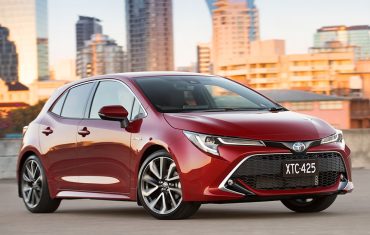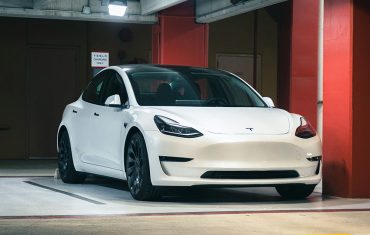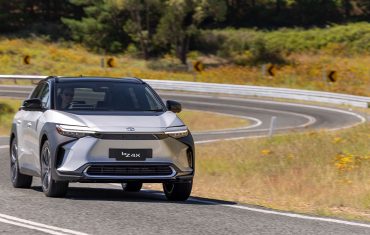
Will rising fuel costs accelerate the sales of EVs?
For driversRecord-high fuel prices will have a significant impact on the shape of the automotive industry this year.
It will also increase the operating costs of your business vehicles and could accelerate the shift towards cleaner and more efficient transport alternatives such as hybrid vehicles and electric cars.
So, how did we get here? What could it mean to your bottom line? And what can you do to protect your business if petrol prices continue to rise?
Well, let’s delve into all those questions and see if we can provide some clarity on the current situation, some direction on where petrol prices are heading and point you towards some simple solutions that could save you money.
Covid supply chain issues
First, petrol prices have been steadily increasing over the last years as a result of supply chain issues caused by the COVID-19 pandemic.
Retail petrol prices are dictated by a number of economic factors, but primarily revolve around the global wholesale price of crude oil which increased from US$24.01 per barrel in March 2020 (at the start of the pandemic) to as much as US$82.81 per barrel by October 2021.
When the price of crude oil increased at the beginning of the pandemic, according to the Australian Consumer Competition Commission the Australian national average fuel price actually dropped to a 22-year low (adjusted to inflation) in 2020-2021 to 129.7c. This was a result of lower demand as consumers were driving less while working from home during lockdowns, forcing retailers to lower their margins in order.
But that wasn’t sustainable. And, as the country began lifting restrictions, petrol retailers gradually began lifting the retail price in line with the rising global crude oil price.
Russian sanctions
The recent conflict in Ukraine and the fallout from Russia’s invasion has dramatically accelerated the trend with the price of crude oil rising to as high as US$123.70 in early March 2022, causing the national average fuel price to soar to a record high of 212.50c.
The federal government has tried to alleviate the public concern by claiming the price increase is only “temporary”.
“The advice we’re getting, particularly out of the International Energy Agency, is its impact is likely to be short term; it’s likely to be temporary,” Prime Minister Scott Morrison recently told the ABC.
“Now, you don’t go and completely recalibrate your budget based on fluctuations in oil prices – they’ve gone up, they’ve gone down. And so we’d need to assess what the longer-term impact would be.”
Australian oil refineries
However, Labor opposition leader Anthony Albanese blamed the government for the price spike noting the recent spate of oil refinery closures in Australia, and the country’s subsequent reliance on international energy.
“Fuel prices have gone through the roof under this government,” he said.
“Half of the refineries in Australia have shut down during this term of government. This government has not met its obligations under the International Energy Agency for fuel reserves.”
BP recently shuttered its Kwinana refinery in Western Australia and Exxon Mobil is set to close its Altona refinery in Victoria, leaving Australia with just two operating oil refineries – the Viva refinery in Corio, Victoria, and the Ampol refinery in Lytton, Queensland.
As a result, the federal government last year agreed to support both Viva Energy and Ampol Australia with $2.3 billion in funding through to 2030 to keep them operating.
The package includes $125million each for the companies to upgrade their refineries to begin production of ultra-low sulphur unleaded fuel by 2024, bringing Australia in-line with major markets.
This will ensure vehicle manufacturers, particularly European-based car makers, will be able to sell the more fuel-efficient vehicles locally.
But that could be too little too late, particularly if petrol prices remain at an all-time high. The cost to run a conventional vehicle with an internal combustion engine may become too prohibitive for many.
Impact to vehicle running costs
Taking into account that the average consumer travels around 10,000km per annum, even the most efficient vehicles on sale today are proving expensive to run.
A non-hybrid Toyota Corolla with a 2.0-litre four-cylinder engine and CVT automatic transmission, for example, consumes an average of 6.0L/100km. In March 2021, with a national average fuel price of 137.9c per litre for 95 Octane Unleaded, it would cost $827.40 in fuel for a year. Now, at 212.50c per litre, that figure blows out $1275.00.
Obviously, vehicles with higher fuel consumption will cost even more.
Fuel consumption tips
To ensure your vehicle is at its most efficient, there are some simple solutions to improve fuel consumption.
- Ensure the vehicle is properly maintained and performing at its optimum.
- Regularly check to make sure the tyres are at the recommended pressures. This will lower the rolling resistance and could improve fuel consumption by up to 10 per cent.
- Use the air conditioning system sparingly, as the compressor is driven from the engine and therefore increases fuel consumption.
- Remove heavy items from the boot as well as accessories such as roof racks and bicycle racks when not in use as these have a negative impact on the vehicle’s aerodynamics.
Looking ahead
The significant increase in fuel prices could be a positive force in accelerating the take-up of electric vehicles.
Sales of EVs increased dramatically in 2020, with more than 12,000 new battery-powered vehicles registered in Australia last year. While that still only accounts for a tiny fraction of the overall market, it is a step in the right direction.
With a wider range of options on the horizon (see our previous story on all The EVs coming to Australia in 2022), and some state governments now offering financial incentives to encourage a greater proportion of EV sales, the popularity of electric cars is set to grow exponentially.
 Driving Insights
Driving Insights



